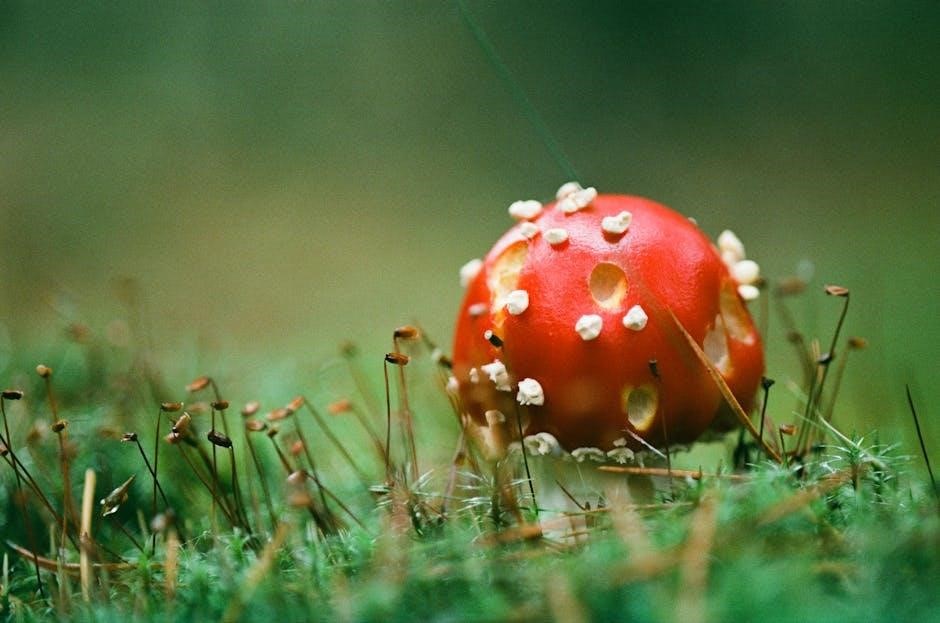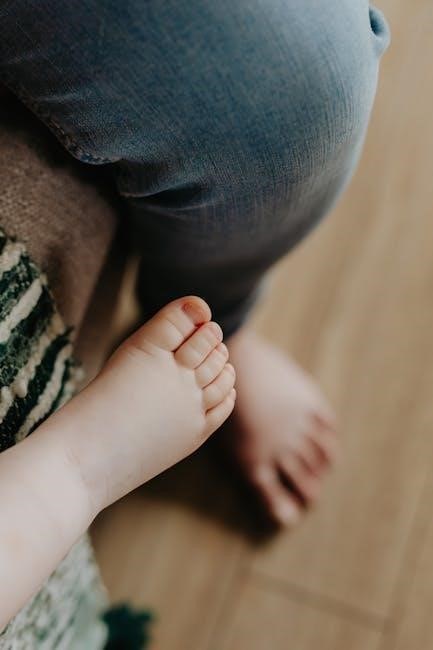The Boys’ Guide to Growing Up: A Comprehensive Overview
This guide serves as a friendly roadmap for boys navigating the complexities of puberty. From physical changes to emotional growth, this comprehensive overview will help young men understand and embrace the transformative journey into adulthood with knowledge and confidence, exploring the key aspects of puberty.
Understanding Puberty: The Basics
Puberty is a transformative phase in a boy’s life, marking the transition from childhood to adulthood. It’s a period of rapid physical, emotional, and hormonal changes, typically starting between the ages of 9 and 14. Understanding the basics of puberty can help boys navigate these changes with greater confidence and self-awareness.
Unlike girls, there isn’t a single defining event, such as the first menstrual cycle, to mark the beginning of puberty in boys. Instead, it’s a gradual process characterized by a series of changes. These changes are primarily driven by hormones, particularly testosterone, which is produced by the testicles.
Puberty involves significant growth spurts, leading to increased height and muscle mass. Voice changes occur as the vocal cords thicken and lengthen, resulting in a deeper voice. Hair growth becomes more noticeable in various areas, including the face, underarms, and pubic region. Skin changes, such as acne and increased body odor, are also common during puberty.

Beyond the physical aspects, puberty also brings about emotional and mental changes. Boys may experience new and intense feelings, increased self-consciousness, and a greater awareness of their identity. Understanding these emotional changes is just as important as understanding the physical ones.
The Age of Onset: When Does Puberty Begin for Boys?
The onset of puberty in boys is a gradual process that typically begins between the ages of 9 and 14, with an average starting age of 11. However, it’s important to remember that every boy develops at his own pace, and there’s a wide range of what’s considered normal. Some boys may start puberty earlier, while others may begin later.
Several factors can influence the age of onset, including genetics, nutrition, and overall health. Boys with a family history of early puberty may also experience it earlier themselves.

The first physical sign of puberty in boys is usually the enlargement of the testicles and scrotum. As the testicles grow, the skin of the scrotal sac will darken. This is often followed by the appearance of pubic hair at the base of the penis.
It’s important to note that there isn’t a single event or sign that definitively marks the beginning of puberty in boys, unlike the first menstrual cycle in girls. Instead, it’s a combination of physical changes that gradually occur over time. If you have any concerns about your son’s development, it’s always best to consult with a healthcare professional.
Physical Changes During Puberty: A Detailed Guide
Puberty brings about a multitude of physical changes in boys, transforming them from children into young men. Understanding these changes can help boys navigate this period with greater confidence. One of the earliest signs is the growth of the testicles and scrotum, accompanied by a darkening of the scrotal skin. Pubic hair begins to appear at the base of the penis, gradually spreading over the pubic area.
The penis itself will also grow in length and width. As puberty progresses, boys experience a growth spurt, leading to an increase in height and muscle mass. Shoulders broaden, and the body takes on a more masculine shape. Hair growth extends to other areas, including the underarms, chest, face, and legs. These changes are driven by hormones, primarily testosterone.
Increased hormone production can also lead to skin changes, such as acne and increased sweating, which can result in body odor. It’s important to maintain good hygiene during this time. Remember that these changes happen at different rates for everyone.
Growth Spurts: What to Expect
During puberty, boys experience significant growth spurts, periods of rapid physical development where they gain height and muscle mass at an accelerated rate. This is one of the most noticeable changes during this time. The growth spurt typically begins about a year after the onset of puberty, usually between the ages of 10 and 16, but this can vary.
These growth spurts do not happen steadily, it is more of a sudden process. It’s also important to know that the growth spurts may affect different parts of the body at different times. For example, hands and feet may grow faster initially, leading to temporary awkwardness or clumsiness. This is perfectly normal.
During a growth spurt, boys need more sleep and nutrition to support their body’s rapid development. Eating a balanced diet rich in protein, calcium, and vitamins is essential. Getting enough rest allows the body to recover and grow. Be patient with yourself and your changing body, and remember that everyone experiences growth spurts differently.
Voice Changes: The Deepening of a Boy’s Voice
One of the most iconic signs of puberty in boys is the deepening of their voice. This change occurs due to the growth of the larynx, also known as the voice box, and the lengthening of the vocal cords. As these structures enlarge, the voice begins to crack and fluctuate before settling into a lower, more resonant tone.
The voice change is caused by hormones, specifically testosterone, which prompts the vocal cords to thicken and lengthen. This process doesn’t happen overnight. It’s gradual and can sometimes be accompanied by awkward voice cracks, which are a normal part of the transition. The voice may sound unstable as you grow older.
Some boys might feel self-conscious during this period, but it’s important to remember that everyone goes through it. Embrace the changes, and don’t be afraid to experiment with your new vocal range. Over time, your voice will stabilize and become a unique expression of your developing identity. Taking care of your vocal cords by staying hydrated can also help during this process.
Hair Growth: Where and When
During puberty, boys experience hair growth in new and unexpected places. This is a normal part of development, triggered by hormonal changes in the body. Pubic hair is typically the first to appear, usually starting around the base of the penis and gradually spreading.
As puberty progresses, hair will begin to grow under the armpits, on the face (mustache and beard), and on other parts of the body, such as the chest, legs, and arms. The amount and thickness of hair vary from person to person, influenced by genetics and ethnicity. Some boys may develop a full beard early on, while others may have sparse facial hair well into their late teens.
Hair growth can be a sign of maturing, but it can also bring new grooming challenges. Learning to shave properly and maintaining good hygiene is important. Remember that everyone develops at their own pace, so don’t compare yourself to others. Embrace these changes as a natural part of growing into manhood.
Skin Changes: Acne and Body Odor
Puberty brings about significant skin changes, often including acne and increased body odor. These changes are primarily due to hormonal shifts that stimulate oil glands in the skin and sweat glands in the body.
Acne, characterized by pimples, blackheads, and whiteheads, is a common concern during these years. The increased oil production can clog pores, leading to bacterial growth and inflammation. Regular cleansing with a gentle face wash, avoiding excessive scrubbing, and using over-the-counter acne treatments can help manage breakouts. In some cases, a dermatologist may be needed for stronger medications.
Body odor becomes more noticeable as sweat glands become more active. Regular showering with soap and water, especially after physical activity, is essential. Using deodorant or antiperspirant can help control odor. Choosing breathable clothing and changing clothes daily can also make a difference. Understanding these changes and practicing good hygiene can help boys navigate this phase with confidence.
Emotional and Mental Changes: Navigating New Feelings
Puberty isn’t just about physical changes; it also brings a wave of emotional and mental shifts. Boys might find themselves experiencing a wider range of feelings, sometimes intensely. Mood swings, increased sensitivity, and moments of self-doubt are common as hormones fluctuate and the brain develops.

Navigating these new feelings can be challenging. It’s important to recognize that these changes are a normal part of growing up. Talking to trusted adults, such as parents, teachers, or counselors, can provide valuable support and guidance. Engaging in activities that promote emotional well-being, like exercise, hobbies, and creative expression, can also help manage stress and boost self-esteem.
Developing emotional intelligence, the ability to understand and manage one’s own emotions and those of others, is crucial during this time. Practicing empathy, learning healthy coping mechanisms, and seeking help when needed are essential skills for navigating the emotional landscape of puberty.
Self-Care During Puberty: Hygiene and Grooming
Puberty brings about significant changes in a boy’s body, making self-care and grooming more important than ever. Increased sweat production can lead to body odor, so daily showering or bathing with soap and water is essential. Deodorant or antiperspirant can help control underarm odor.
Skin changes, such as acne, are also common. Washing the face twice a day with a gentle cleanser can help prevent breakouts. Avoid picking at pimples, as this can lead to scarring. If acne is severe, a dermatologist can provide effective treatment options.
As hair growth increases, regular grooming becomes necessary. This includes washing hair regularly and learning to shave as facial hair develops. Good dental hygiene, including brushing and flossing, is also crucial for maintaining a healthy smile.
Taking care of one’s body is an important part of self-respect and confidence. Establishing good hygiene and grooming habits during puberty sets the stage for a lifetime of healthy living.
Dealing with Peer Pressure and Social Challenges
Puberty often brings increased social pressures as boys navigate changing relationships and expectations. Peer pressure, the influence from friends to conform to certain behaviors or attitudes, can be particularly challenging.
It’s important to remember that you have the right to make your own choices, even if they differ from what your friends are doing. Develop a strong sense of self and identify your values. This will help you resist pressure to engage in activities that make you uncomfortable or go against your beliefs;
If you’re facing peer pressure, try these strategies: say no confidently, offer an alternative, or simply walk away. Surround yourself with friends who respect your decisions and support your well-being.
Social challenges can also arise from changing friendships or feelings of insecurity. Remember that it’s okay to seek help from trusted adults, such as parents, teachers, or counselors. They can offer guidance and support as you navigate these social complexities.
Communication and Support: Talking to Parents and Trusted Adults
Navigating puberty can feel overwhelming, but remember you’re not alone. Open communication with parents and trusted adults is crucial for support and guidance during this transformative time.
Talking to parents can be difficult, but it’s essential to remember they were once your age and have likely experienced similar changes. Choose a quiet time to talk, and be open and honest about your feelings and concerns.
If you’re uncomfortable talking to your parents, identify other trusted adults, such as teachers, coaches, or relatives. These individuals can provide a listening ear and offer valuable advice.
When communicating, be specific about your feelings and experiences. This will help adults understand your perspective and offer relevant support. Remember, seeking help is a sign of strength, not weakness.
Don’t hesitate to ask questions or seek clarification on topics you find confusing. Open communication fosters understanding and strengthens relationships, making the journey through puberty smoother and more manageable.
Puberty in Girls: Understanding the Differences
While this guide primarily focuses on puberty in boys, understanding the changes girls experience is equally important. Recognizing these differences fosters empathy, respect, and healthy relationships.
Girls typically begin puberty earlier than boys, often between the ages of 8 and 14. A key difference is the onset of menstruation, a monthly cycle involving the shedding of the uterine lining.
Breast development is another significant change in girls, occurring in stages and varying in size and shape. Hormonal changes also lead to the widening of hips and the redistribution of body fat.

Emotionally, girls may experience mood swings and increased sensitivity due to hormonal fluctuations. Open communication and understanding are crucial during this time.
It’s important to remember that every girl experiences puberty differently. Avoid making assumptions or comparisons, and treat each individual with respect and kindness. Understanding the differences between puberty in boys and girls promotes empathy and strengthens relationships.
Leave a Reply
You must be logged in to post a comment.